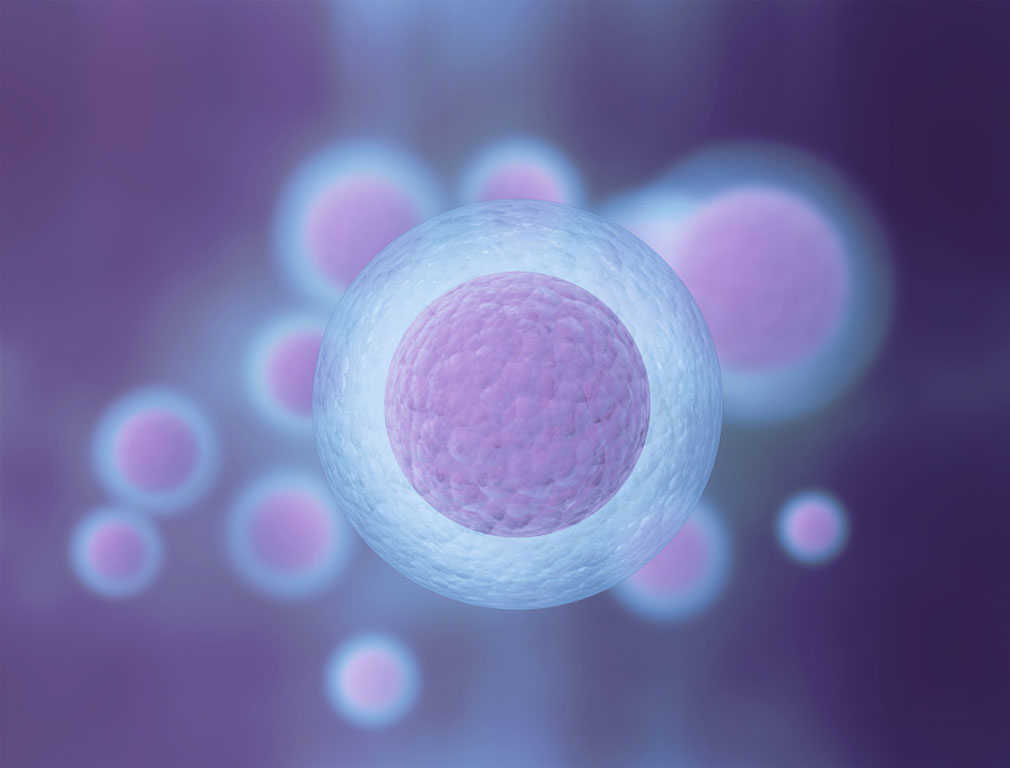What to Expect from Ovarian Stimulation in IVF

Ovarian stimulation is the second stage of IVF fertility treatment. The goal is to harvest as many mature eggs as possible from the woman’s ovaries. Harvesting many eggs maximizes the chances one of the eggs can be fertilized, implanted back into the uterus, and become a healthy baby.
Because the natural female reproductive cycle is incredibly complex, ovarian stimulation is also a complicated process. An IVF cycle can be stressful, especially when you’re going through it for the first time.
In this post, we explain what ovarian stimulation is, how it works, and what happens during this phase of your IVF journey.
Before You Start
Before you start ovarian stimulation, you will have undergone extensive fertility testing. Testing will include blood tests to show the baseline levels of hormones in your body, allowing your physician to recommend a treatment regimen that’s suited to you. It’s likely you’ll also be on birth control pills for several weeks beforehand, so we can be confident about your hormonal clock.
A Regular Ovulation Cycle
Within a woman’s ovaries are hundreds of thousands of ovarian follicles, each of which contains an oocyte (an immature egg cell). A follicle is a small, fluid-filled cyst.
During each menstrual cycle, several follicles begin to develop, each capable of releasing a mature egg during ovulation. Normally, a single one of these—called the dominant follicle—will grow faster than the others. A dominant follicle that is ready to ovulate is about 18-28mm in diameter.
The dominant follicle releases an egg during ovulation, at the mid-point of the menstrual cycle. If a woman isn’t pregnant, she will normally have her period around 14 days after ovulation.
Some female factor fertility issues can affect the development of follicles. The most notable is Polycystic Ovarian Syndrome, a very common and highly treatable condition.
How Ovarian Stimulation Works
In an IVF cycle, you maximize your chances of success by generating as many mature eggs as possible. The stimulation phase involves the injection of medications for 8-14 days, to induce the ovaries to produce many eggs. The stimulation phase takes longer if your follicles are slower to mature.
The medications stimulate (and are derived from) two key hormones, Follicle Stimulating Hormone (FSH) and Lutenizing Hormone (LH). These hormones have the following effects:
- As the name suggests, FSH stimulates follicles to develop during the menstrual cycle. Normally, non-dominant follicles die off before ovulation as FSH levels fall. FSH injections maintain higher levels of FSH in the body, allowing the ovaries to produce more mature eggs.
- Just before ovulation, higher levels of estrogen trigger a spike in LH, which causes ovulation. A ‘trigger shot’ of a large dose of human chorionic gonadotropin(hCG), which stimulates ovulation, starts the process.
After ovarian stimulation, but before ovulation, comes the egg retrieval phase of IVF.
What to Expect
The ovarian stimulation process requires good timing and great care. A problem can require the process to be restarted—a frustrating and discouraging experience. At the same time, this phase of treatment can be a time of great hope and expectation.
Managing medications
IVF medications are often complicated. You’ll likely be self-administering a combination of injections, patches, and pills. Under the stress of IVF, it’s very easy to forget what medications you need to take at what times. If this happens to you, don’t be embarrassed or alarmed, but seek help and advice.
Once you’re taking medications to stimulate your ovaries, you’ll need regular blood tests to measure the levels of hormones in the body. Because every woman responds to IVF medications differently, hormones must be adjusted day-to-day to ensure enough follicles are stimulated, and to reduce the risk of ovarian hyperstimulation syndrome.
Your physician will likely require an ultrasound to monitor the growth of follicles within the ovaries.
Tests and travel
Because of the need for regular tests and medications, you will be in constant communication with your medical team. It’s also likely you will need to travel regularly for tests. That’s one of the reasons it’s important to choose a medical team you trust.
Stress and mood changes
Perhaps not surprisingly, given of the demands of the process, stress and mood swings are common during ovarian stimulation. Mood swings can be a combination of hormonal changes in your body, and the stress of IVF treatment itself—it’s often hard to separate the two.
Potential Side Effects of Ovarian Stimulation
The American Society for Reproductive Medicine lists the following potential side effects for FSH and LH:
- Increased incidence of multiple births—because multiple eggs are released, there is an increased chance that multiple eggs will implant in the uterus
- Increased incidence of miscarriage and premature delivery
- Breast tenderness, swelling, or rash where the hormones are injected
- Mood swings and depression
- Ovarian hyperstimulation syndrome, which can cause enlarged ovaries, abdominal pain, and bloating.
Advice for the Ovarian Stimulation Phase
If you are considering IVF, before ovarian stimulation:
- Choose a medical team you trust to be reliable—good communication will be vital
- Keep on top of your medications
- Don’t wait to seek advice if you’re not sure about anything
- Make sure you can make arrangements that will allow you to travel for tests and discuss results with your medical team
- Understand the process is stressful and be gentle with yourself.
We understand that ovarian stimulation is one of the most challenging parts of IVF. We have examined the process from beginning to end, making improvements that make life easier for patients, maximizing the chances of a successful cycle. Learn more about Our Process for making IVF easier, or visit our IVF page for more information about the whole process of IVF.


















